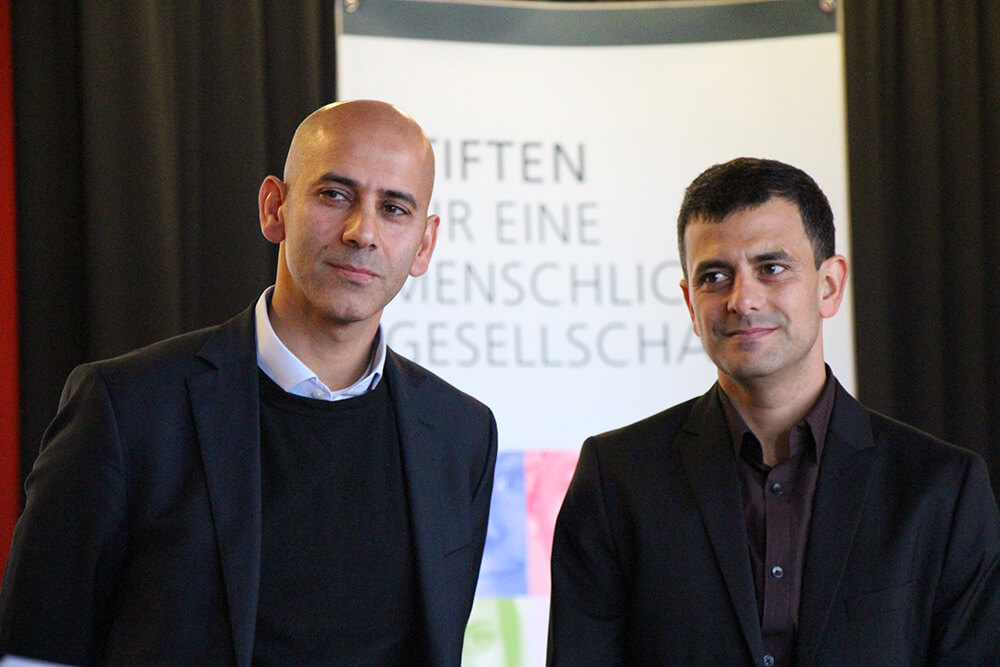An interview with Mohamed Ibrahim and Shemi Shabat about their tandem guided tour Jerusalem in Dialogue
Since April 2018, we’ve offered a tandem guided tour called Jerusalem in Dialogue (more about the tour) through our current temporary exhibition Welcome to Jerusalem (more about the exhibition). On each tour, two guides with their own personal relationships to Jerusalem speak from different perspectives about the city and the exhibition, which runs until 30 April 2019.
The format of a tandem tour emerged from a museum-guide training session (more about the training) that we conducted together with the Hochschule für Technik und Wirtschaft Berlin (HTW), a university of applied sciences. The German-Palestinian Mohamed Ibrahim and the Israeli Shemi Shabat contributed to its development and now oversee it together.

Mohamed Ibrahim and Shemi Shabat at the Flechtheim Prize ceremony of the Humanist Association of Germany (Humanistischen Verbands Deutschland) and the Humanist Foundation (Humanismus Stiftung); Humanistischer Verband Berlin-Brandenburg KdöR
Andy Simanowitz spoke to the two about the training, the concept of the tandem tour, and their relationship to Jerusalem.
Andy Simanowitz: To begin with, could you introduce yourselves and your work a bit?
Shemi Shabat: I’m Shemi. I was born and raised in Tel Aviv and I came to Berlin 11 years ago. At that time, a colleague asked me what I would think of developing workshops on the Palestine/Israel Middle-East conflict together with a Palestinian. At this point, we’ve been doing it for 10 years, going together to schools as a German-Palestinian and an Israeli to talk with students about the Middle East conflict. It’s now my second source of income; I’m also a consultant for the antidiscrimination network of the Turkish Federation in Berlin-Brandenburg.
Mohamed Ibrahim: I’m Mohamed, a German-Palestinian who has been living in Berlin for over 40 years. I was born in a refugee camp in Lebanon and I grew up in West Berlin. I studied politics here with a focus on international relations. My regional focus was the MENA region and the Middle-East conflict. My main occupation is development work at a federal implementing organization. As Shemi said, I’ve been doing these trainings with him for over 10 years.